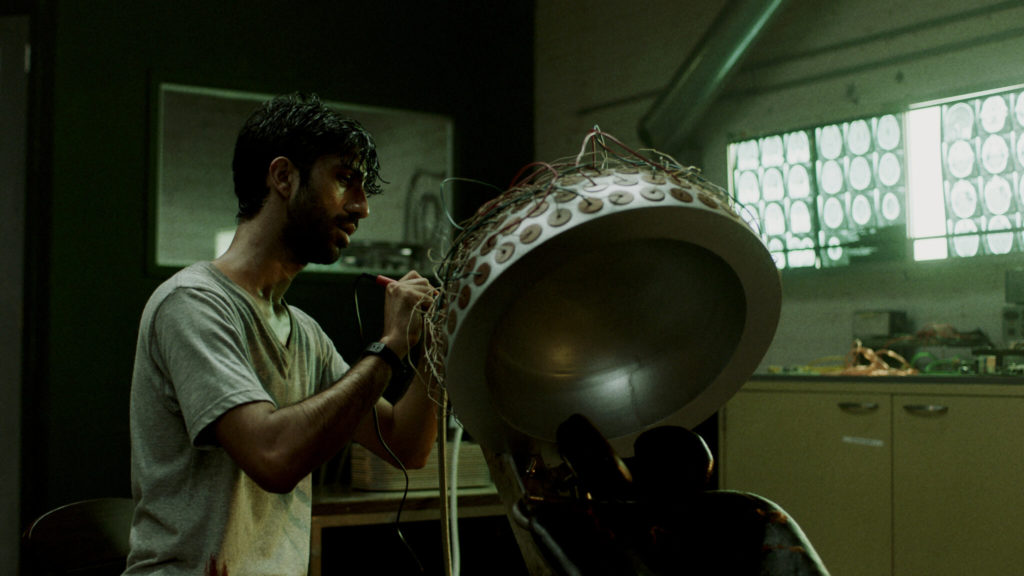
Eric Schultz’s directorial debut, “Minor Premise,” is a nifty puzzle, a scientific thriller that doesn’t insult the intelligence with any superfluous corn, Instead, the scientific aspect is cranked way up.
Sathya Sridharan portrays a driven neuroscientist on the verge of a breakthrough. Building on and hoping to complete research begun by his father, he applies the experiment to himself.
At first it seems a way to make vivid the memories deep in the consciousness, in the manner they tried on, say, the series “Devs.” He’s explaining the theory while participating in a too-familiar scene — an online class to a handful of students.
Then you think it might be about time jumping, in that time-honored “Momento” sci-fi conceit so easily accomplished in film. But mostly we learn he’s merely blacking out for specific periods of time, awaking with dried blood on his face since he often just drops like a heap to the ground when he does so (You’d think he’d at least wear a helmet or pad the floors once he learns this side effect).
Eventually, it’s clear he’s mapping neuropathways of the brain, and learning that he’s arranging them into ten distinct sections enumerated at the start of the film: Anxiety, Anger, Libido, Unconsciousness, Intellect, Primitive, Creative, Euphoria and one, number 8, that’s still a mystery.